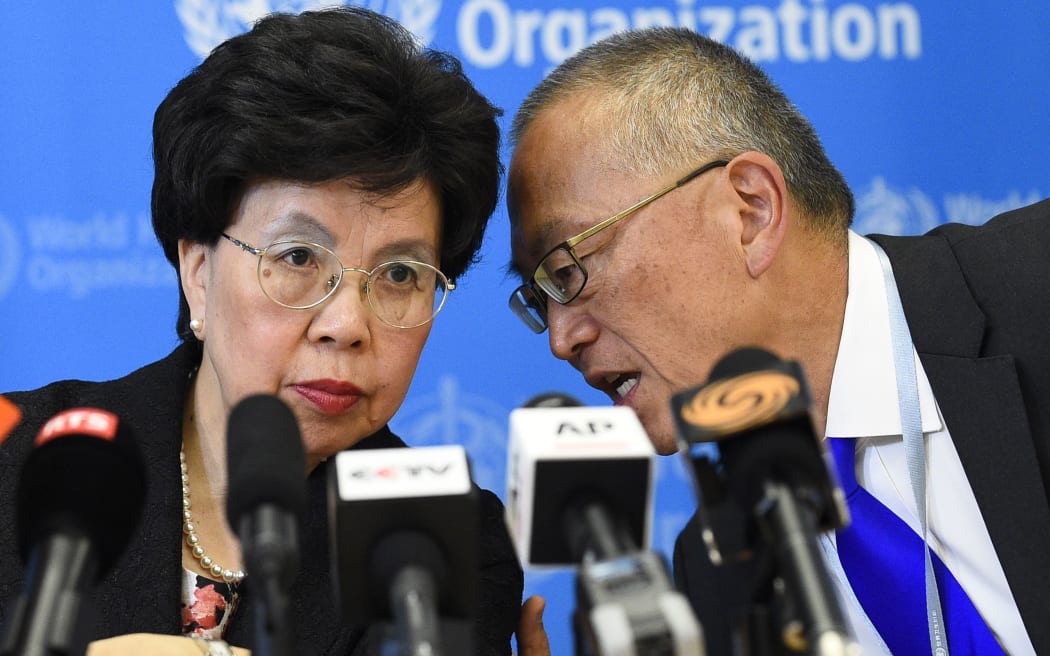The World Health Organisation (WHO) has declared the spread of Ebola in West Africa an international health emergency.

One thousand dead, and counting ... World Health Organization (WHO) Director-General Dr. Margaret Chan with assistant director-general for health security Keiji Fukuda following a two-day emergency meeting on west Africa's Ebola epidemic. Photo: AFP
WHO officials said a coordinated international response was essential to stop and reverse the spread of the virus.
The announcement came after experts convened a two-day emergency meeting in Switzerland.
Over 1000 people have died from Ebola in West Africa this year, the BBC reported.
The United Nations health agency said the outbreak was an "extraordinary event".
"The possible consequences of further international spread are particularly serious in view of the virulence of the virus, the intensive community and health facility transmission patterns, and the weak health systems in the currently affected and most at-risk countries," it said in a statement.
WHO director-general Dr Margaret Chan appealed for help for the countries hit by the "most complex outbreak in the four decades of this disease".
She said there would be no general ban on international travel or trade.
But states should be prepared to detect, investigate and manage Ebola cases, including at airports, she said.
There were a number of challenges in affected countries, said the WHO. These include "very weak health system capacity" and lack of medical staff, laboratory technicians and protective clothing.
The decision by the WHO to declare Ebola a public health emergency is, by its own definition, an "extraordinary event" which marks "a public health risk to other states through the international spread of disease".
Past emergencies declared by the WHO include swine flu in 2009 and polio in May.
Although the recommendations stop short of international flight and trade restrictions, they have symbolic significance.
Pandemic unlikely
According to Dr Jeremy Farrar, director of the Wellcome Trust, the recommendations will help provide global leadership. While Ebola continues to pose a very serious health threat for people in West Africa, it remains "very unlikely that the outbreak will turn into a global pandemic", he said.
But Keiji Fukuda, the WHO's head of health security, said that with the right steps and measures to deal with infected people, Ebola's spread could be stopped.
"This is not a mysterious disease. This is an infectious disease that can be contained," he said. "It is not a virus that is spread through the air."
Prof David Heymann of the London School of Hygiene & Tropical Medicine, said the recommendations were "comprehensive and evidence-based".
Prof Tom Solomon, of the UK's NIHR Health Protection Research Unit in Emerging and Zoonotic Infections, welcomed the emphasis on outbreak control in local areas, "such as using full personal protective equipment (gowns, masks, gloves, goggles) with proper training".

